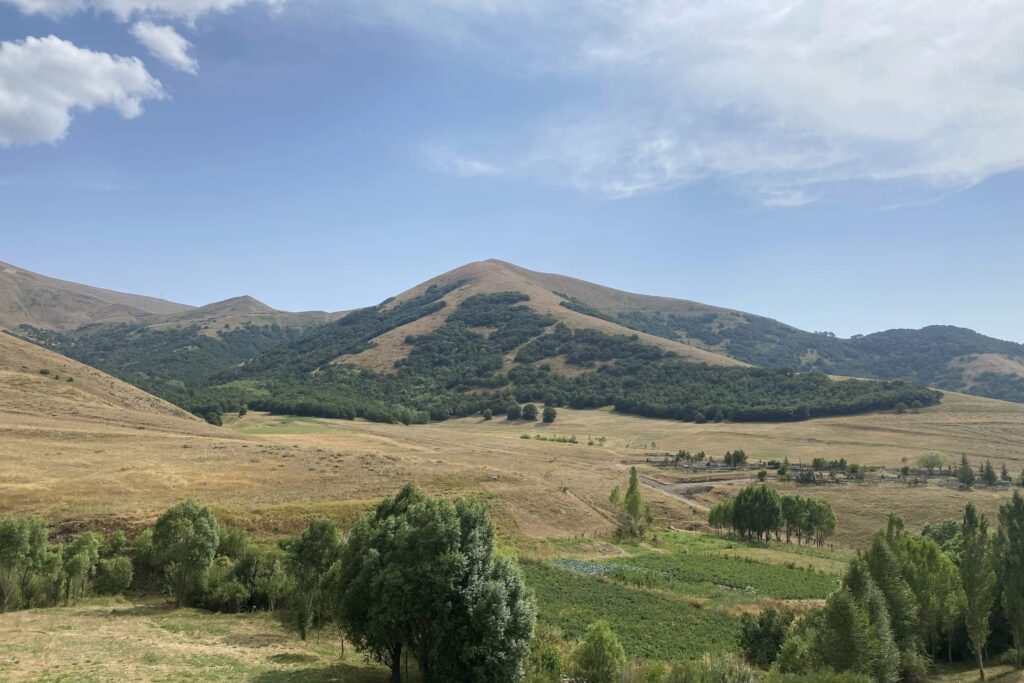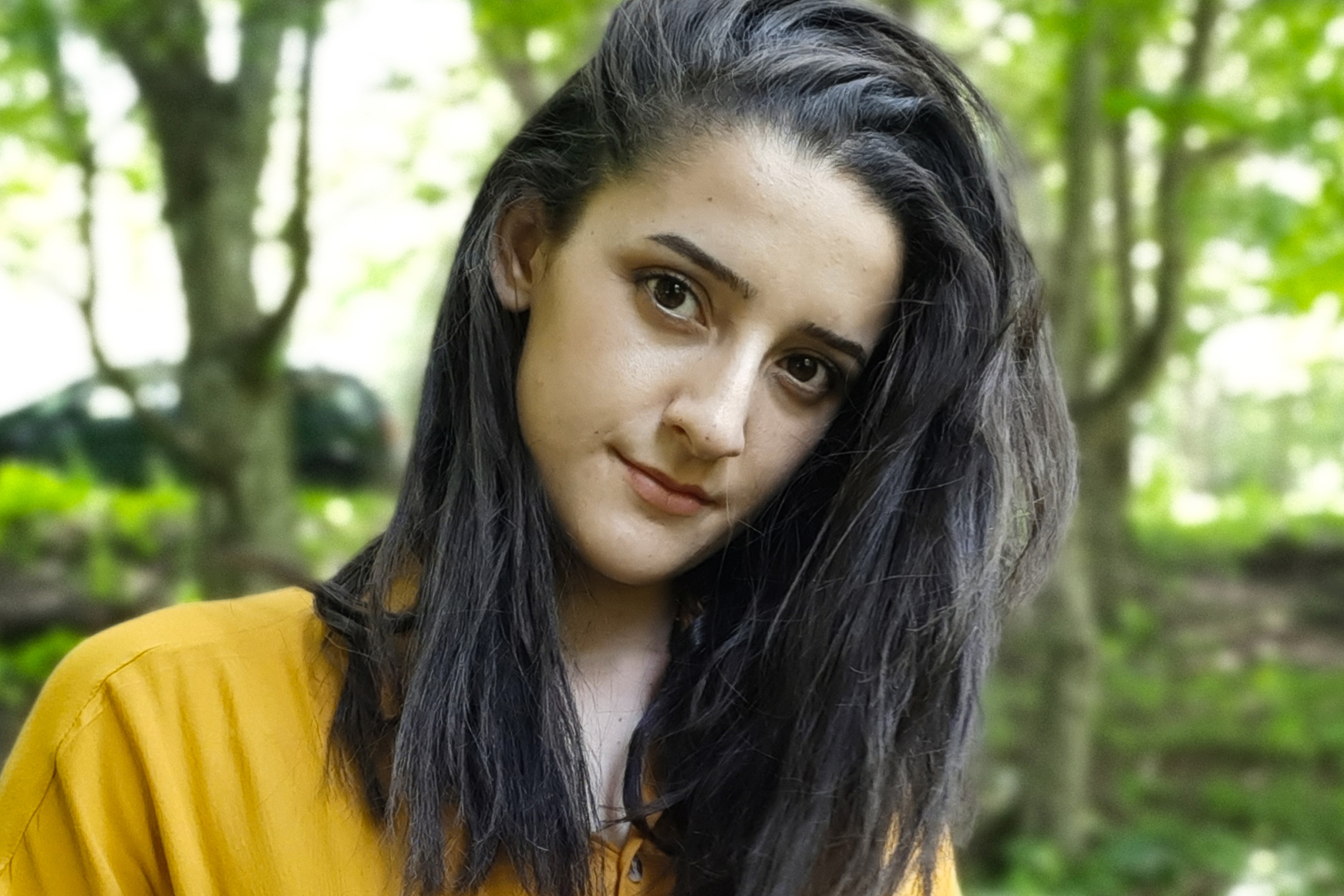An all-seasons resort promised sun and snow to its guests, and significant profits to its investors. But local residents have had their land taken from them, and been excluded from decisions that will reshape the region they live in.
The Ghazaryan family has lived in Yeghipatrush for generations. Their village is remote, nestled at the base of Mount Aragats in Armenia’s central Aragatsotn Province. Surrounded by wide plains and dense forests, the village is within walking distance of the Aparan reservoir.
Like most people in the village, the Ghazaryans depend on their family land and the pastures around the village for their income, sustaining themselves with small-scale agriculture and cattle farming. But a new development project in the area threatens their lands and their way of life.
The development aims to turn the land next to the village and part of the village itself into a recreational area with hotels, casinos, and ski slopes, as well as setting up a free trade zone for low-tax investments.
While this might look like a promising plan to attract investment to an underdeveloped region, residents of the village say they have been excluded from the process from its inception.
‘I don’t see a problem with implementing that project here, but people’s rights shouldn’t be ignored’, says Zara Ghazaryan. ‘They can’t exploit the villagers and think that people living in remote areas can’t fight for their rights’.
The residents of Yeghipatrush have, indeed, been fighting.
Figures and failures
At first glance, the Myler Mountain Resort sounds like an attractive prospect.
Approved by Armenia’s government in July of 2021, and managed by a company run by the former head of the government’s Compulsory Enforcement Service, the total value of the investment currently stands at ֏15 billion ($38 million), with the plan being to attract ֏15 billion more from other private investors.
The total projected area of the project is 2,000 hectares (20 square kilometres), which includes land currently used for agriculture. Once construction is completed in 2024, the company has pledged to create 1,500 jobs with an average salary of ֏180,000 ($450) a month. They also expect a minimum of half a million customers, generating at least ֏50 billion ($13 billion) every year.
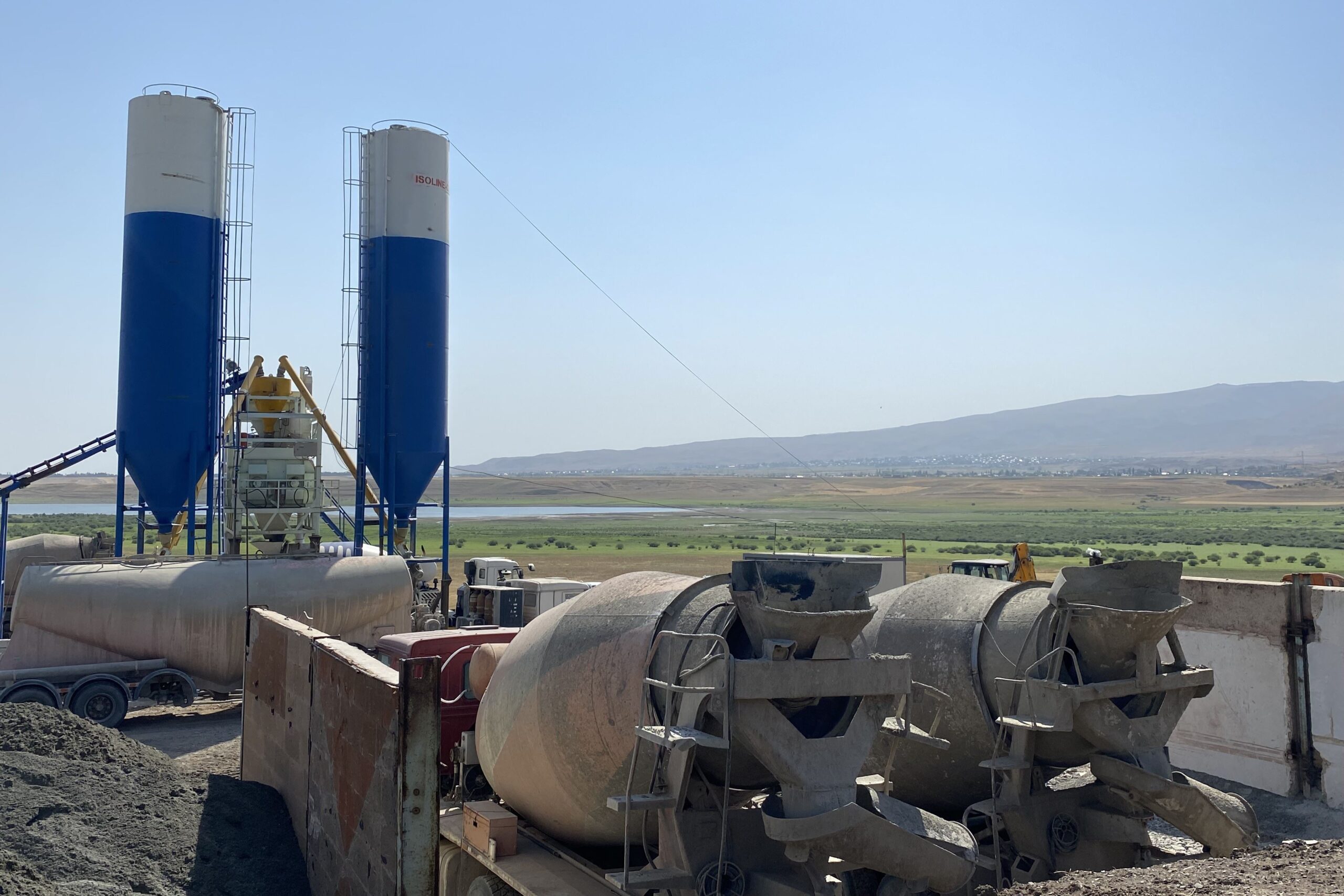
But the full picture is less rosy.
The company’s previous attempt to launch a similar project in the Pambak Mountains failed in 2019, when the new government invalidated the permit given to the company three years earlier. The reason for the change was fierce opposition from local residents — a series of protests and an unwavering refusal to give up the municipal lands allocated for the MyMekh Ski Resort prompted the government to U-turn on their earlier commitment.
In Yeghipatrush, opposition is also strong, but their protests have not yet yielded tangible results. Since early this year, the village’s residents have gathered for protests in the village and in front of the government offices in Yerevan. But the construction of the resort is becoming more active day by day.
Calling her home deserted
When the project first began, the company bought land from a number of people in the village. According to residents protesting against the development who spoke to OC Media, the land was bought at prices significantly below market value, with people selling because they were afraid that this might be their last chance to do so before the land they owned was forcibly taken from them.
Those fears turned out to be well-founded.
Subsequent high demand from outside businesses and investors, driven by expectations of a successful project, drove the company and the government to take a step that stripped the villagers of their property and power: land that they had been the legal owners of was declared property of the municipality earlier this year.
Of the 1,600 hectares (16 square kilometres) taken from residents and given to Yeghipatrush Municipality with ‘free ownership rights’, only 32 hectares (0.32 square kilometres) has been excluded from future privatisation.
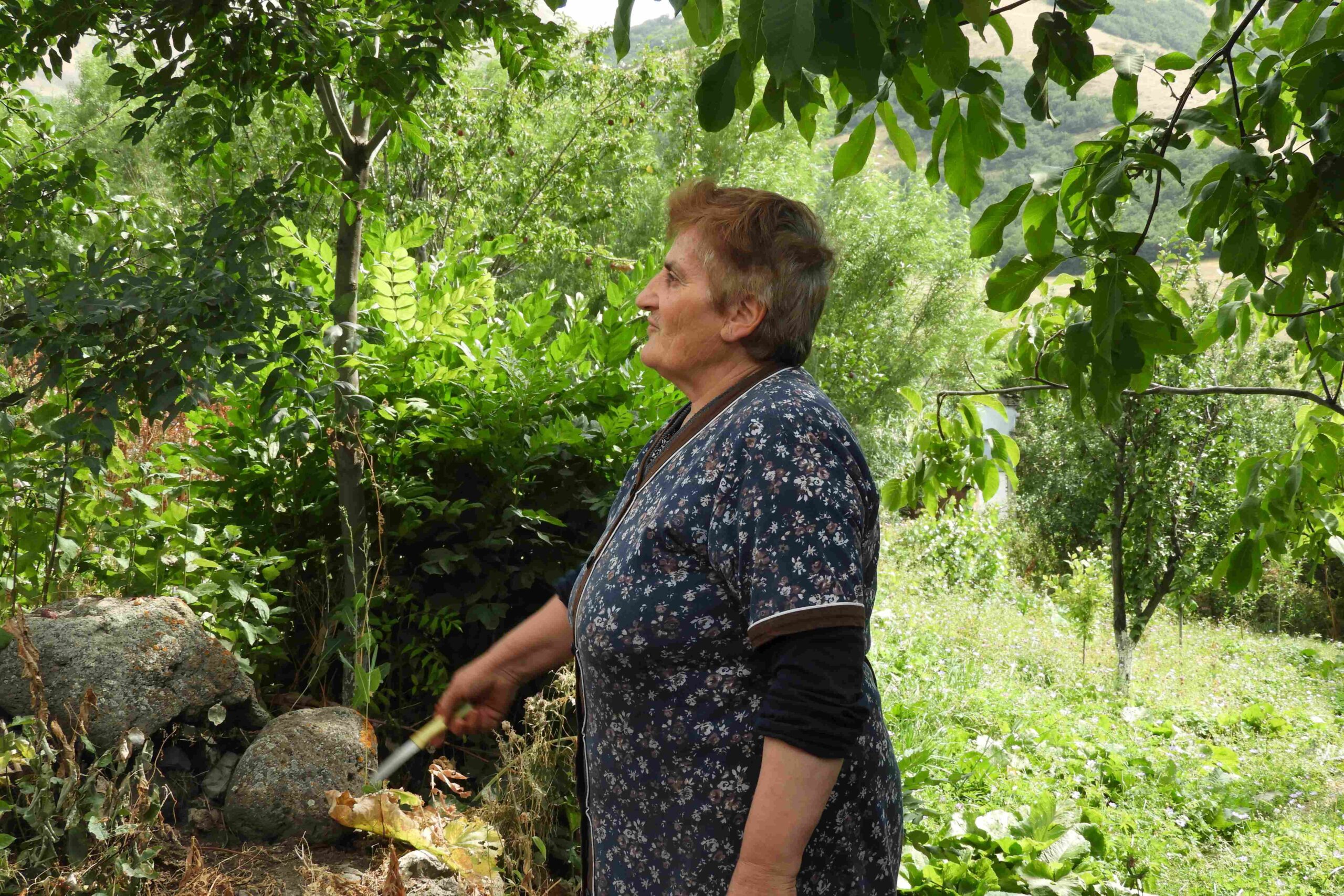
Rima Matevosyan, 68, has lived in Yeghipatrush for all of her life. But the 600 square metres of land that she and her family live off was described in the project’s documents as ‘deserted’, and consequently property of ‘public interest’, along with 5.8 square kilometres across the village.
‘My husband planted these trees on his knees, he took care of them in the last days of his life; how can I give up on it?’, she says. ‘Now they came and called this land deserted’.
The Matevosyan family — who have been actively protesting the government’s decision — is currently hoping for some, hopefully good, news after Prime Minister Nikol Pashinyan visited the village in late summer and promised to help remedy the situation.
But Matevosyan isn’t optimistic, having already been disappointed by the treatment she’s received from both the government and the company.
‘I was told I don’t need the land, I should go and work for someone else instead. Someone else’s house. How can they say that?’
Matevosyan says she will not agree to exchange her land for any other; the land she wants and needs is in front of her house.
Neither land nor jobs
Armenia’s Ministry of Economy told OC Media that the benefits of the project to the region outweighed the individual interests of the landowners, as the project would encourage investment, create new jobs, and develop tourism.
The ministry added that ‘the implementation of the project cannot go ahead without [landowners giving up] those lands’.
But Karen Ghazaryan, the father of the Ghazaryan family, is sceptical about the promised benefits. He has been working for a construction company that is building a ropeway in the mountains in preparation for the planned ski resort.
‘Only about 30 out of over 1,000 residents got jobs with the construction company’, says Ghazaryan. He notes that they too will face unemployment once the main part of the construction is finished. ‘Other than that and agriculture, people don’t have many options to meet their basic needs’.
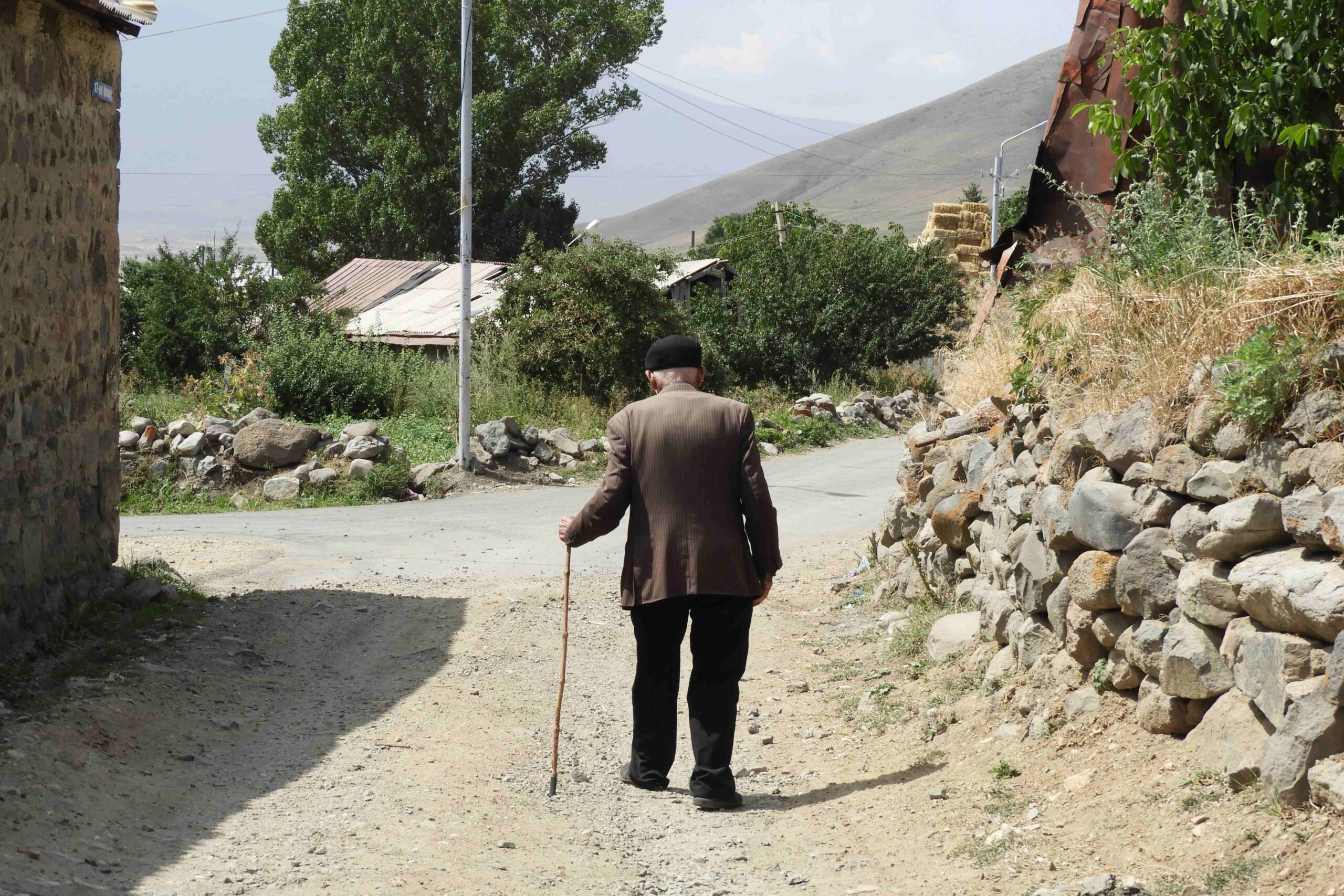
Karo Davtyan, a teacher at the local school, is also worried about what the loss of land means for the people of Yeghipatrush.
‘I am afraid that agriculture and the self-employment of people in agriculture [in Yeghipatrush] will have completely vanished in maybe five years’, Davtyan told OC Media.
His family has around 1.7 hectares (17,000 square metres) of land, and as for so many others, the plots are the main source of their income.
Davtyan says that at least 70 families are bound by the government’s decision to take control of their land, affecting over a hundred homestead lands. Davtyan calls this ‘absolutely unacceptable’.
Davtyan says that people from Yeghipatrush are in direct contact with the Prime Minister’s office, and waiting for a response following a meeting with the Prime Minister.
But the proposal from the government and company that they accept an exchange of land has not been well-received.
‘First, because that company does not have enough plots of land subject to exchange’, says Davtyan, adding that even if the territories around Yeghipatrush owned by the businessman are large, the quality of the lands is not good enough.
‘There were some plots of land that were relatively good, but they have already exchanged them with a few families’, says Davtyan. ‘They also said that some of the lands they own are necessary for the project’.
Davtyan is clear about his feelings regarding the project.
‘If something is carried out through lies, manipulations, deception, hurting, depriving the people, it cannot be good’, Davtyan says. ‘Some of our people do not admit this yet: but everyone will benefit, only we will suffer’.




 6 January 2023
6 January 2023
